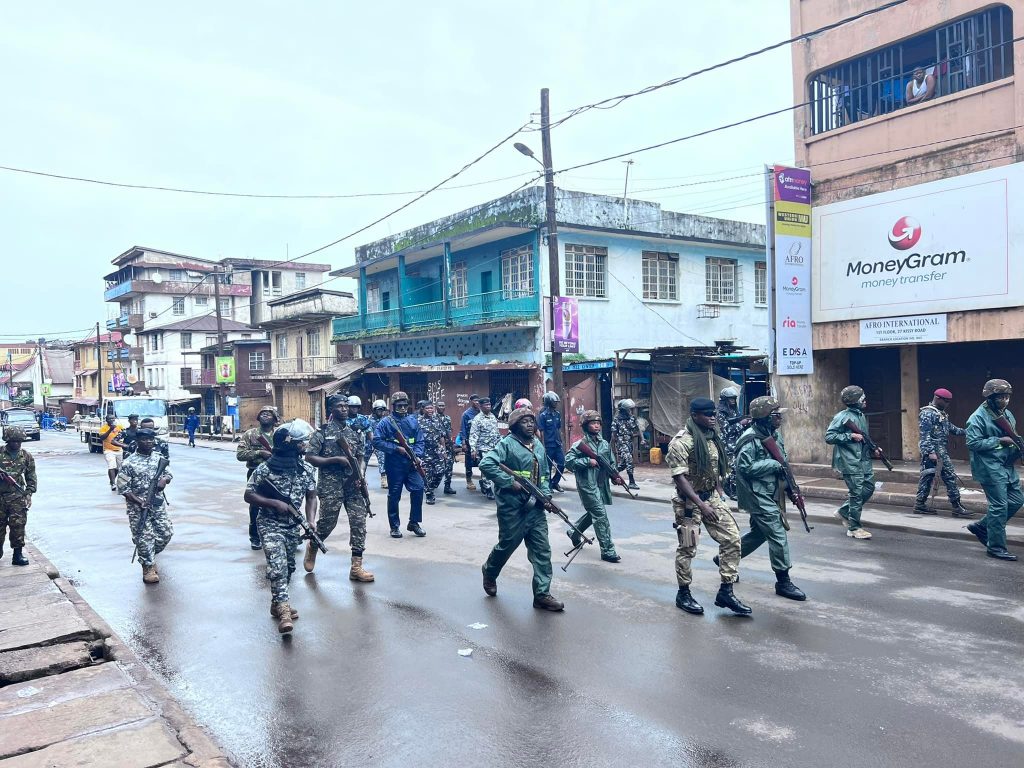This has been a tough week for Sierra Leoneans, especially those who lost loved ones in the horrific violence and small business owners who were affected around the country. There has been outrage and a lot of condemnation of the protests and the ensuing violence. Focusing on the events of 10th August alone and framing them solely as a ‘law and order’ issue, without considering the conditions that made them happen would be problematic and limits our ability to have a rounded and meaningful conversation. Therefore, it is very important to try and spotlight the underlying issues that have brought the nation to this point.
When such incidents occur, there is always the tendency to create a false proportionality and address the protesters or people and the State and its security forces on equal terms. You would hear heavily caveated and overly cautious statements that end up saying nothing. Without brutal honesty and reflection, we would only be circling around the big issues. This is not a ‘we-condemn-violence’ piece. It is an honest examination of the circumstances.
To begin with, the Government of Sierra Leone must own up. Coming events, they say, cast their shadows and there have been signs on the wall indicating the level of distrust, anger and frustration among citizens. Whenever these sentiments are manifested, the government and sections of their support base dismiss them as bogus, irrelevant and politically motivated. And it’s not just the dismissiveness of the government, it is the way they go about it—arrogant, insulting and not reflective of an empathetic government. All of this has created a situation of alienation where non-supporters of the government or even citizens who are just unhappy with the way the country is run are painted as ‘enemies of progress’ doing the bidding of the opposition. This attitude seems to have been pervasive in the way the government responds to dissenting voices. ‘Terrorism’ is now the government’s preferred language to describe protests.
Secondly, the behaviour of the security forces, especially the police, has always come under scrutiny. It is easy for them to open fire and use other disproportionate anti-riot means on unarmed civilians, often leading to loss of life. Examples of this abound. And when this happens, there is no accountability. Now we are at a point where civilians are not only challenging the police but going to the extent of attacking and killing the men and women in uniform expected to protect them. Long years of repeated incidents of police violence, brutality and impunity can explain this sad turn of events.
There is also the ‘Adebayor’ factor which, to be honest, has received far more attention than it deserves. People who should know better seem to be providing the attention that is needed to propel the Adebayor narrative. If you understand how dis/misinformation works, you already know that the more you engage with it, the more mileage you give it. How does one man become so influential than the political parties and leaders? The answer is simple, and it takes us back to a point made already: he fills a void and speaks a language that resonates with the angry and frustrated. And when the government fails to effectively engage with the people on important everyday issues, people like Adebayor become relevant because he is consistent and relentless in his inflammatory and despicable rhetoric.
This explains the gullibility of ordinary folks – some of whom were just as eager to join the mayhem than understanding the implications of their actions. While the loss of lives and property is regrettable and reprehensible, it is important to take a holistic view of why and how we got to this point. It is our view that the discussions should not just be limited to the violent events and the unfortunate categorisation of protesters as ‘terrorists’. . It should provide opportunities for moments of critical reflections and answers to tough questions. Are people angry and frustrated by what is going on? Do people feel alienated? Does the government engage constructively to resolve issues? Has the government performed well in unifying the nation and diffusing tensions? Have the police been reprimanded for their heavy-handedness and bad conduct? These are questions that should provide the basis for the government to turn the searchlight inward and reflect on its relationship with the people.
While the President’s BBC interview has been widely commended and came close to the tone that the public expected, the framing of the narrative within the prism of ‘terrorism’ is not only alienating and unhelpful, it defeats even the government’s avowed approach of presenting Sierra Leone as a safe destination for business. Language matters. What might appear to be politically convenient today could have long-lasting ramifications for our body politic. The President may decide to play to the gallery of hardliners in his government and support base–some of whom are baying for blood. He may take a different approach to tone down the rhetoric, move away from the shrill and relentlessly engage with the concerns of those he has described as ‘terrorists’. In the words of Max Lucado, “a man who wants to lead the orchestra must turn his back on the crowd”. Moment of truth beckons. Governance is bigger than politicking.
Whatever you are up to in the coming days, take care of yourself and stay out of trouble.


